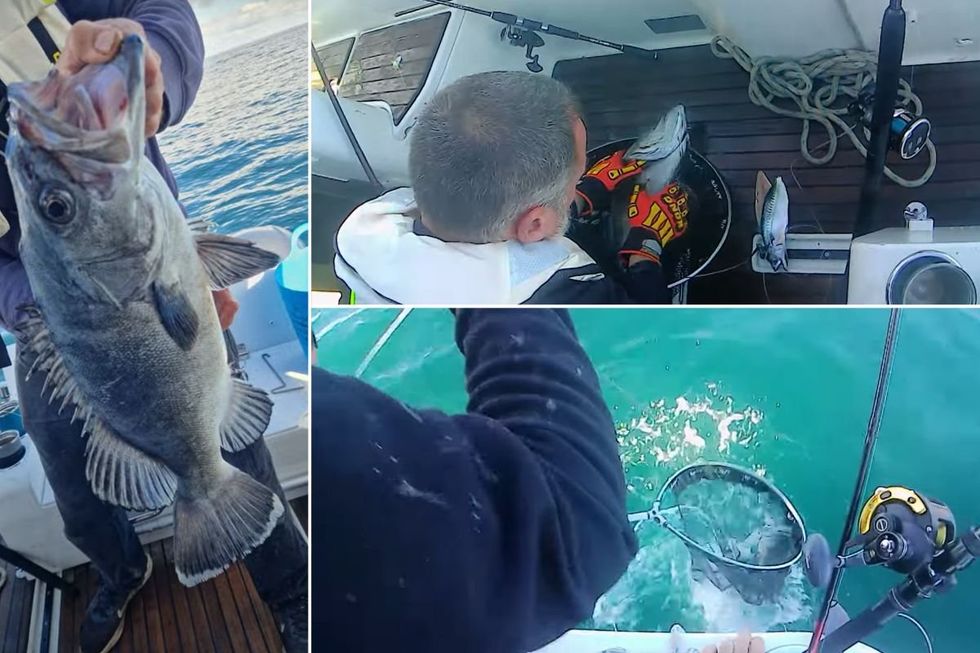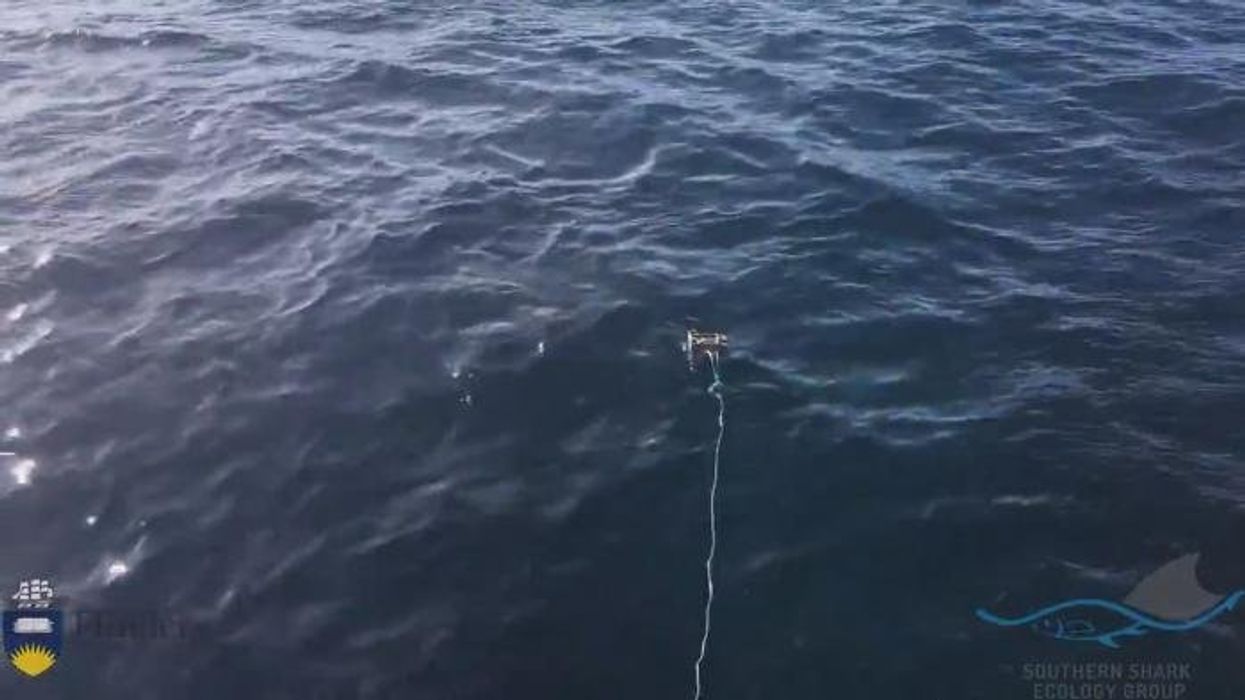Prehistoric shark-eating fish caught off UK coast in major breakthrough

The record-breaking wreckfish had taken mackerel bait intended for sharks
Don't Miss
Most Read
Trending on GB News
A kayak angler has landed an extraordinarily uncommon Atlantic wreckfish in waters off Cornwall, marking what could be one of the most unusual catches in British fishing history.
The prehistoric deep-water predator, scientifically termed Polyprion americanus, typically inhabits depths of several hundred metres and is renowned for its ability to consume sharks.
Owen Mates, who operates the Kayak Fishing Cornwall YouTube channel, hooked the remarkable specimen while targeting blue sharks approximately ten miles from shore in Falmouth Bay.
The species, which can survive for a century, rarely ventures into waters shallow enough for rod fishing.
Adult wreckfish almost never encounter humans, making this catch particularly exceptional for British coastal waters.
The encounter occurred last month when Mates and two companions were creating a chum slick to attract blue sharks.
"We had a chum slick out and were targeting blue sharks when this strange-looking fish started circling the boat," Mr Mates explained.
Mr Mates also explained that the anglers initially struggled to identify the unusual visitor.

Owen Mates, who operates the Kayak Fishing Cornwall YouTube channel, hooked the remarkable specimen while targeting blue sharks approximately ten miles from shore in Falmouth Bay
|KAYAK FISHING CORNWALL
"At first, we had no idea what it was and then, after a few minutes, it took one of the shark baits a mackerel flapper on my rod," he said.
The seasoned angler expressed his astonishment at the unexpected catch.
"I couldn't believe it," he added after seeing the substantial fish secured on his line.
The wreckfish had taken the mackerel bait intended for sharks, creating an extraordinary moment for the fishing party.
LATEST DEVELOPMENTS

The prehistoric deep-water predator, scientifically termed Polyprion americanus, that typically inhabits depths of several hundred metres, was found off the coast of Falmouth Bay
|PA
The fish measured between 70 and 80 centimetres and weighed an estimated 10 to 12 pounds, dimensions that could surpass the existing British rod-caught record of 11 pounds 14 ounces established in 2001.
Despite the potential record, the anglers photographed their catch briefly before releasing the wreckfish unharmed back into the ocean.
"It wasn't until we got home and checked online that we realised just how rare it was," Owen added.
His research revealed that the sole comparable catch occurred in 2001, taken from waters midway across the Channel near Poole.
"The only record I could find was from 2001 and caught mid-Channel off Poole nothing close to land like this," he noted.
The proximity to the Cornish coastline makes this catch exceptionally unusual for the species.
The wreckfish's reputation as a formidable predator extends beyond this recent catch.
America's National Oceanic and Atmospheric Administration documented extraordinary footage of the species' hunting prowess using a remotely operated camera.
Scientists initially believed they were investigating a shipwreck when they discovered sharks engaged in what appeared to be a feeding frenzy.
The predators were consuming a 2.5-metre swordfish when a massive wreckfish approached with an entire shark already in its jaws.
Researchers concluded that the wreckfish, unable to access the swordfish directly, had instead seized one of the feeding sharks.
This behaviour demonstrates the species' opportunistic nature and remarkable capacity to prey upon other apex predators.
Such footage underscores why encounters with these deep-sea hunters remain exceptionally rare in British waters.











